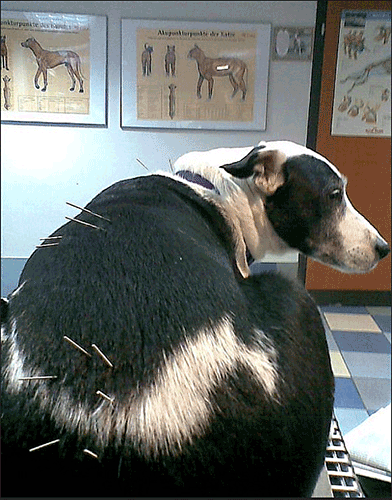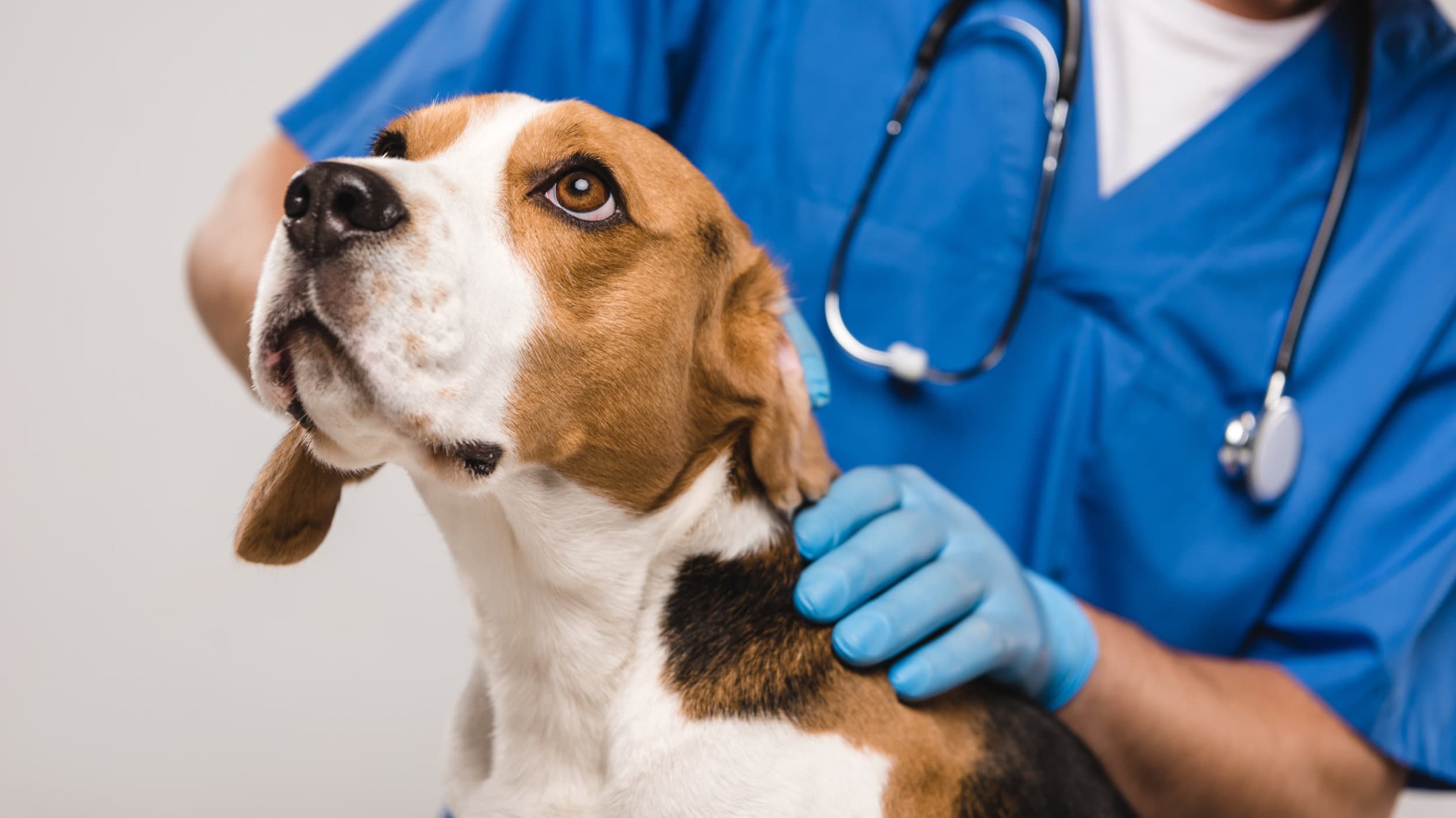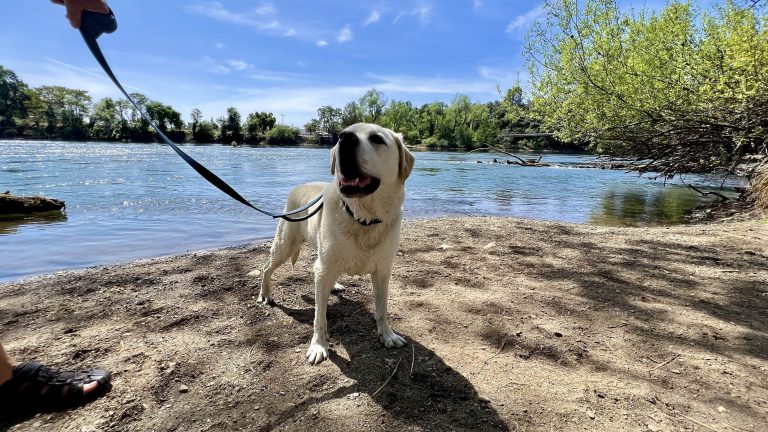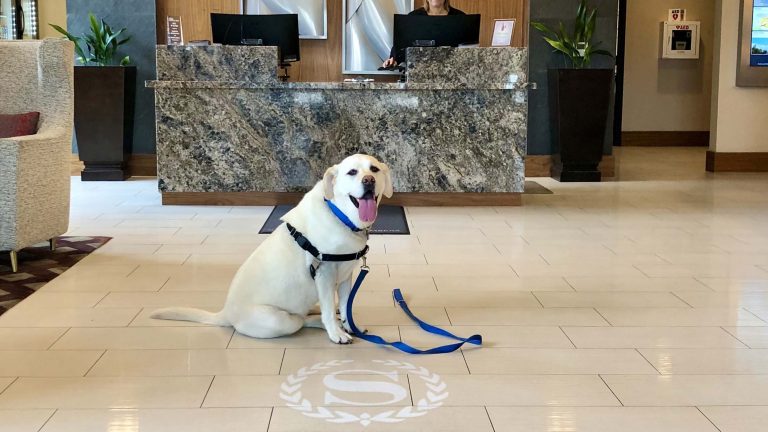By Pamela Bouchard, DVM, CVA VCA
Tender Care Animal Hospital, San Rafael, CA
Have you ever seen a dog standing still, shaking and unwilling to move its neck? How about an old Labrador having difficulty standing up and dragging its toes when it walks? Or, a little dachshund suddenly having paralysis in its rear legs? All of these are symptoms of disc disease occurring in different places in the spine.
In type one degeneration, the disc deteriorates and ruptures suddenly into the spinal cord resulting in severe acute pain, weakness, or paralysis. This is usually in chondrodystrophic dog breeds such as the dachshund, beagle, corgi, Pekingese, bulldog and Lhasa apso. “Chondrodystrophy” is a disorder of cartilage development in these dogs with abnormally short legs.

With type two disc protrusions, the symptoms progress slowly over time and they occur in older, large breed dogs. It may start with just a slight drag of the leg, and then gradually the legs weaken and the dog may walk with a drunken gait.
When disc disease occurs in the neck, it causes severe pain when moving the neck and weakness in all four legs. Sometimes compression of a nerve root causes shifting lameness of the front legs, or sometimes the dog will hold one leg up. This is called a root signature sign.
Radiographs (xrays) may suggest disc disease, but an MRI is needed to confirm diagnosis. Western medical treatments include anti-inflammatories and, in severe cases, surgery. Is there an alternative to surgery?
Studies have shown that acupuncture is very effective in treating all forms of disc disease. Electro-acupuncture, where electrical leads are attached to dry needles and connected to an electro-acupuncture machine, is more effective than plain needles. Acupuncture decreases inflammation, alters blood flow and affects nerve pathways to decrease pain and restore function. Treatments are initially done one to two times per week, and gradually at greater intervals as the patient improves.
Acupuncture can be used effectively alone, or combined with Western medicine. For example, in one study of 50 dogs, electro-acupuncture combined with standard conventional medical treatment resulted in less pain and a shorter time to function than with western medicine alone. Even in cases where surgery is suggested studies show that acupuncture is a good alternative.
Always look for a veterinarian who is certified and experienced in treating disc disease. She will know whether or not acupuncture is an appropriate treatment for your case.









